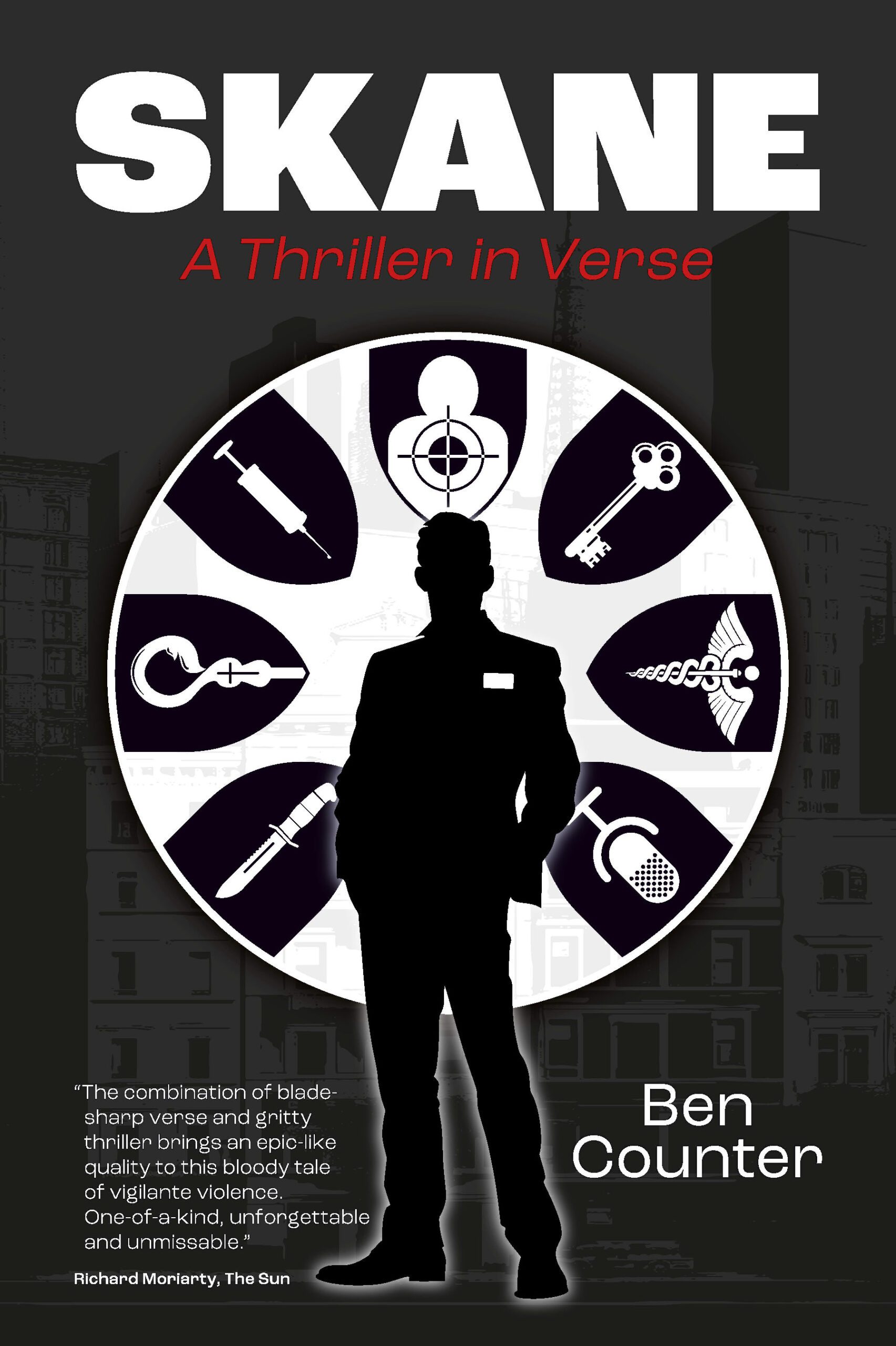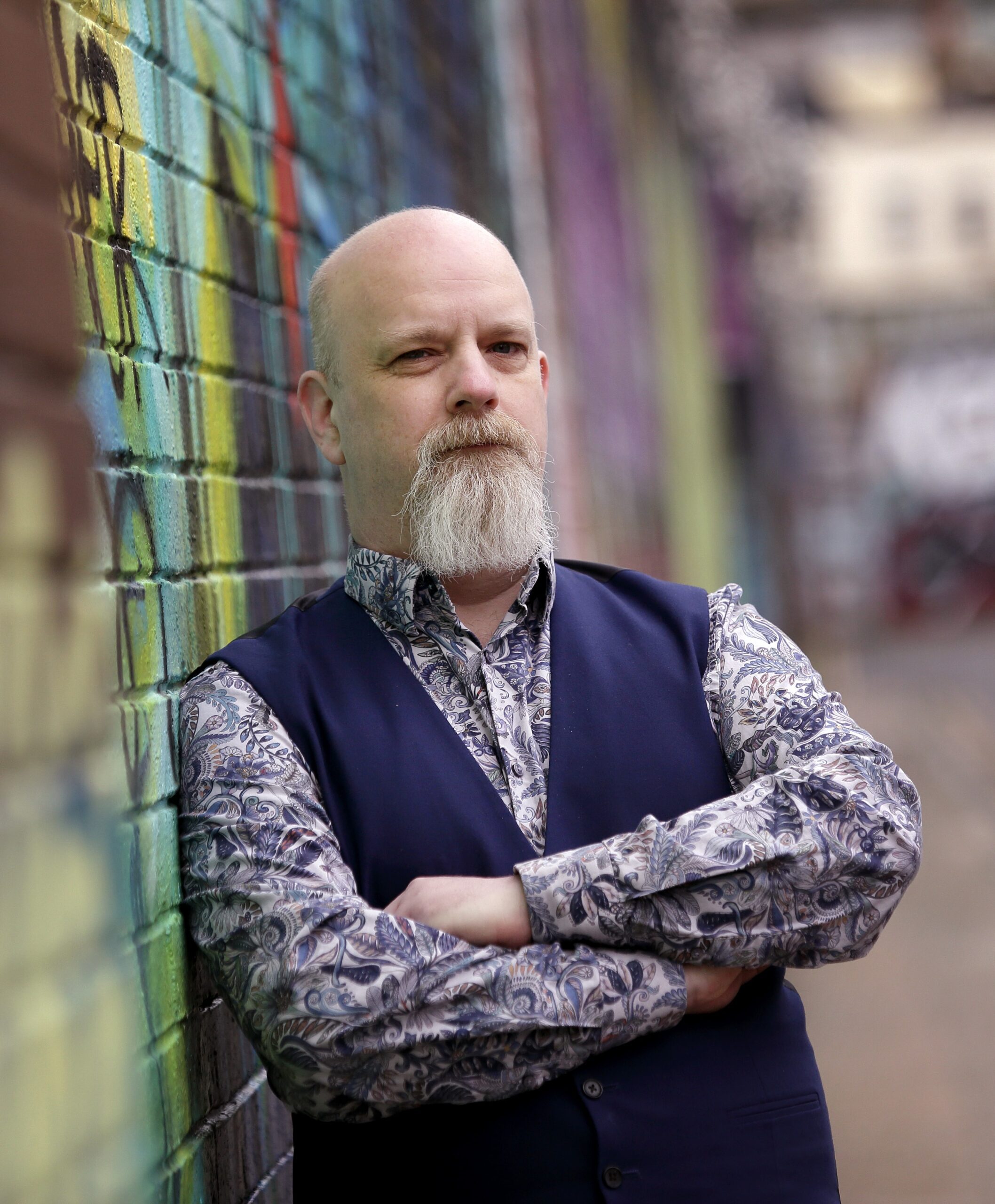Skane: A Thriller in Verse is, as the subtitle implies, written in verse. It has a rhyme and rhythm scheme,
and is totally different from both the prose novels and audio scripts I have written for most of my career. It
rendered the writing very difficult and, above all, slow. Skane took about three years to write, in several
periods of one verse per day. The question that emerges is, why do this?
One answer is precisely because it was so difficult. The project was a challenge to myself. It represented
such a ridiculous self-imposed limitation that simply finishing it was a significant achievement. Another
reason is the density of meaning in verse compared to prose. When writing a novel, I could quite happily
spend thousands of words describing a fight or a particularly striking description, while with verse, every
word is at a premium so any meaning has to be crammed into far fewer. This means verse often has to be
unpacked to get the full story, drilling into each word to put together the sequence of events. I find this
immensely satisfying, as if every verse is a separate puzzle to unravel.
Finally, and most pretentiously, verse is the way that stories have been told I the Western world from at
least the Archaic period of Ancient Greece, around the 8th Century BCE. This is the time of the Iliad and
the Odyssey which were compiled from versions passed on from memory, by the poet Homer. These epics
were written with a rhythm worked into the lines as an aid to memory and developed into a distinct form
of poetry. I studied the Iliad at university and it was a big influence on how I understand stories to work,
so writing a story of my own in verse is a reflection of the way stories were written millennia ago.
Skane is perhaps a very strange book, and one that in the context of storytelling history is a throwback to
the oldest forms of literature. It was an exciting, even transgressive book to write, since it felt like a
reaction against the forms we are accustomed to for our stories. I am fascinated, if a little nervous, to hear
what readers think about the end result.






